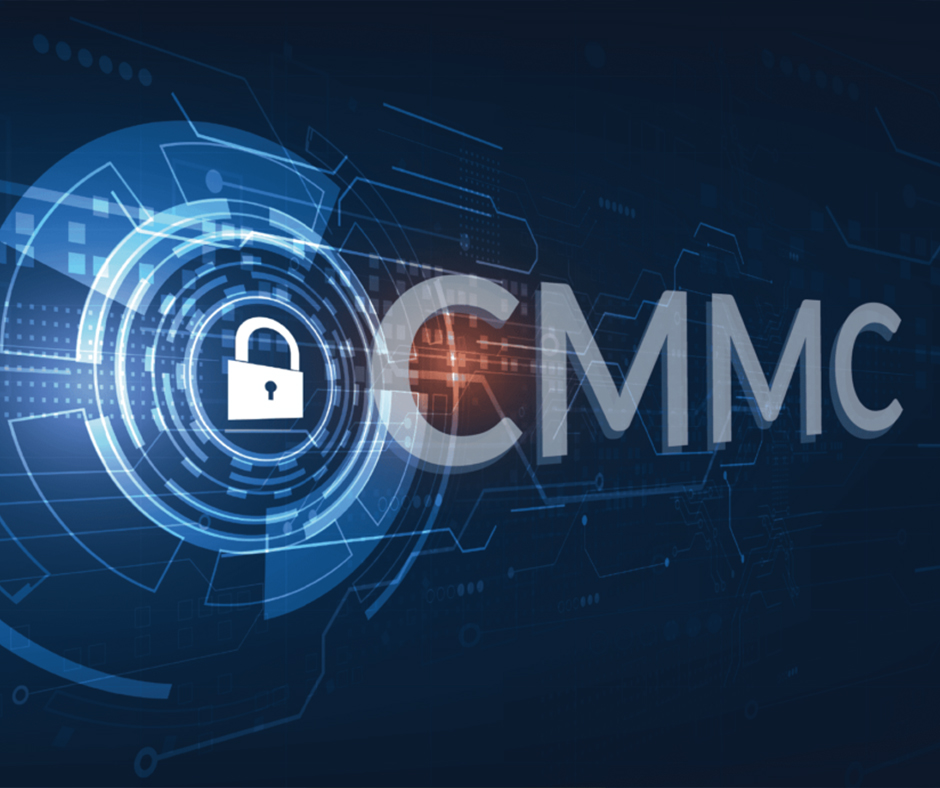Cybersecurity

Cybersecurity
"As cyber threats continue to increase, organizations worldwide are searching for individuals who thoroughly understand cybersecurity principles and concepts. The PECB Cybersecurity Foundation training course directly responds to this demand, equipping participants with the necessary knowledge to actively contribute to implementing and managing robust cybersecurity programs.
The PECB Cybersecurity Foundation training course covers fundamental concepts related to cybersecurity program implementation, attack mechanisms, threat mitigation measures, risk management, incident response best practices, and information sharing and coordination policies and procedures. By acquiring a comprehensive understanding of these aspects, participants will gain the required competencies to participate in cybersecurity management projects effectively."
"This training course is intended for:
Managers and consultants seeking to expand their cybersecurity knowledge
Professionals aiming to familiarize themselves with best practices in cybersecurity management
Individuals responsible for carrying out cybersecurity activities within their organization
Individuals interested in pursuing a career in cybersecurity"
"Upon successfully completing the training course, participants will be able to:
Explain the fundamental cybersecurity concepts and principles
Identify the main standards and frameworks for cybersecurity, such as ISO/IEC 27032 and NIST Cybersecurity Framework
Explain approaches, methods, and techniques for ensuring cybersecurity"
There are no prerequisites to participate in this training course.
"Organizations nowadays are affected by the ever-evolving digital landscape and constantly face new threats and complex and sophisticated cyberattacks. There is a pressing need for skilled individuals capable of effectively managing and implementing robust cybersecurity programs to counter these threats. Our Lead Cybersecurity Manager training course has been developed to address this need.
By attending the PECB Certified Lead Cybersecurity Manager, participants will learn the fundamental cybersecurity concepts, strategies, methodologies, and techniques utilized to effectively establish and manage a cybersecurity program based on the guidance of international standards and industry best practices for cybersecurity. Additionally, this training course empowers participants to enhance their organization’s readiness and resilience against cyber threats. Participants will be well-prepared to support their organization’s ongoing cybersecurity efforts and make valuable contributions in today’s ever-evolving cybersecurity landscape. "
"This training course is intended for:
Managers and leaders involved in cybersecurity management
Individuals tasked with the practical implementation of cybersecurity strategies and measures
IT and security professionals seeking to advance their careers and contribute more effectively to cybersecurity efforts
Professionals responsible for managing cybersecurity risk and compliance within organizations
C-suite executives playing a crucial role in decision-making processes related to cybersecurity"
"Upon successfully completing the training course, participants will be able to:
Explain the fundamental concepts, strategies, methodologies, and techniques employed to implement and manage a cybersecurity program
Explain the relationship between ISO/IEC 27032, NIST Cybersecurity Framework, and other relevant standards and frameworks
Comprehend the operation of a cybersecurity program and its components
Support an organization in operating, maintaining, and continually improving their cybersecurity program"
To fully benefit from this training course, participants should have a fundamental understanding of cybersecurity concepts and management.

Lead SCADA Security Manager
"Lead SCADA Security Manager training enables you to develop the necessary expertise to plan, design, and implement an effective program to protect SCADA systems. In addition, you will be able to understand common Industrial Control System (ICS) threats, vulnerabilities, risks related to the Industrial Control Systems (ICS) and techniques used to manage these risks. This training focuses on several aspects of security management and skills related to SCADA/ICS security.
Lead SCADA Security Manager training course is designed by industry experts with in-depth experience in SCADA and Industrial Control Systems Security. Unlike other trainings, this training course concentrates specifically on the knowledge and skills needed by a professional seeking to advice on, or manage risks related to SCADA environments and systems. Given the high profile nature and the significant impacts associated with such environments, a holistic professional approach to security is needed and that is exactly what this course is designed to provide.
In addition, to acquire the theoretical knowledge needed by a SCADA Security Manager, a comprehensive methodology for the implementation of a SCADA Security program is presented. Thus, at the end of this course, you will gain knowledge on how to effectively implement a security program for SCADA/ICS systems.
After mastering all the necessary concepts of SCADA Security, you can sit for the exam and apply for a “PECB Certified Lead SCADA Security Manager” credential. By holding a PECB Lead SCADA Security Manager Certificate, you will be able to demonstrate that you have the practical knowledge and professional capabilities to support and lead a team in managing SCADA Security."
"Security professionals interested in acquiring SCADA security professional skills
IT professionals looking to enhance their technical skills and knowledge
IT and Risk Managers seeking a more detailed understanding of ICS and SCADA systems
SCADA system developers
SCADA engineers and operators
SCADA IT professionals"
"Understand and explain the purpose and risks to SCADA systems, Distributed Control Systems and Programmable Logic Controllers
Understand the risks faced by these environments and the appropriate approaches to manage such risks
Develop the expertise to support a pro-active SCADA Security program, including policies and vulnerability management
Define and design network architecture incorporating defense in advanced security controls for SCADA
Explain the relationship between management, operational and technical controls in a SCADA Security program
Improve the ability to design resilient and high availability SCADA systems
Learn how to manage a program of effective security testing activities"
A fundamental understanding of SCADA Security.

Lead Ethical Hacker
"As the impact of security incidents in small and large organizations has increased significantly, so has the demand for ethical hacking. Ethical hacking is one of the most effective tools of safeguarding assets and protecting people and information. Ethical hacking certification is slowly becoming a standard requirement for professionals who want to work in the field of information security.
A PECB Certified Lead Ethical Hacker certification will help you demonstrate your ability to lawfully assess the security of systems and discover their vulnerabilities. The training course provides information on the latest ethical hacking methods and tools. It also provides a methodology for conducting penetration tests in accordance with standards and best practices, such as the Penetration Testing Execution Standard (PTES) and the Open Source Security Testing Methodology (OSSTMM).
Understanding hackers’ strategies helps solve security issues and challenges. After attending the training course, you will be able to plan, manage, and perform information security penetration tests.
The PECB Certified Lead Ethical Hacker training course is based on the concept of practicing what you learned. It includes lab sessions and practical examples to help you apply the theory into practice.
The training course is followed by an exam. If you pass, you can apply for a “PECB Certified Lead Ethical Hacker” credential. For more information about the examination process, please refer to the Examination, Certification, and General Information section below."
"This training course is intended for:
Individuals seeking to gain knowledge about the main techniques used to conduct penetration tests
Individuals involved in information security seeking to master ethical hacking and penetration testing techniques
Individuals responsible for the security of information systems, such as information security officers and cybersecurity professionals
Information security team members seeking to enhance their information security knowledge
Managers or expert advisors interested in learning how to manage ethical hacking activities
Technical experts interested in learning how to plan and perform a penetration test"
"This training course allows you to:
Master the concepts, methods, and techniques used by cybersecurity organizations and ethical hackers to conduct penetration tests
Acknowledge the correlation between penetration testing methodologies, regulatory frameworks, and standards
Acquire a comprehensive knowledge of the components and operations of ethical hacking"
The main requirement for participating in this training course is having knowledge of information security concepts and principles and advanced skills in operating systems. It is recommended for participants to have knowledge of computer networks and the concepts of programming.

Computer Forensics
"Computer Forensics Foundation training enables you to learn the basic elements to implement Computer Forensics
processes. During this training course, you will be able to understand computer forensics tools that are used to implement
the forensics evidence recovery and analytical processes.
After completing this course, you can sit for the exam and apply for the “PECB Certified Computer Forensics Foundation”
credential. A PECB Foundation Certificate shows that you have understood the fundamental methodologies, processes and
management approach. "
" Individuals interested in Computer Forensics Processes
Individuals seeking to gain knowledge about the main processes of Computer Forensics
Individuals interested to pursue a career in Computer Forensics"
"Understand the basic concepts of Computer Forensics
Understand the basic processes of Computer Forensics
Understand the approaches, methods and techniques used to effectively manage Computer Forensics Processes"
There are no prerequisites to participate in this training course.

Lead Cloud Security Manager
"The growing number of organizations that support remote work has increased the use of cloud computing services, which has, in turn, increased the demand for a secure cloud infrastructure proportionally.
This training course is designed to help participants acquire the knowledge and skills needed to support an organization in effectively planning, implementing, managing, monitoring, and maintaining a cloud security program based on ISO/IEC 27017 and ISO/IEC 27018. It provides a comprehensive elaboration of cloud computing concepts and principles, cloud computing security risk management, cloud-specific controls, cloud security incident management, and cloud security testing.
The training course is followed by the certification exam. If you successfully pass it, you can apply for a “PECB Certified Lead Cloud Security Manager” credential. A PECB Lead Cloud Security Manager Certificate demonstrates your ability and competencies to manage a cloud security program based on best practices."
"Cloud security and information security professionals seeking to manage a cloud security program
Managers or consultants seeking to master cloud security best practices
Individuals responsible for maintaining and managing a cloud security program
Technical experts seeking to enhance their cloud security knowledge
Cloud security expert advisors"
"Gain a comprehensive understanding of the concepts, approaches, methods, and techniques used for the implementation and effective management of a cloud security program
Acknowledge the correlation between ISO/IEC 27017, ISO/IEC 27018, and other standards and regulatory frameworks
Gain the ability to interpret the guidelines of ISO/IEC 27017 and ISO/IEC 27018 in the specific context of an organization
Develop the necessary knowledge and competence to support an organization in effectively planning, implementing, managing, monitoring, and maintaining a cloud security program
Acquire the practical knowledge to advise an organization in managing a cloud security program by following best practices"
The main requirement for participating in this training course is having a fundamental understanding of ISO/IEC 27017 and ISO/IEC 27018 and a general knowledge of cloud computing concepts.

ISO/IEC 27033 Lead Network Security Manager
"Network security protects the network infrastructure and ensures confidentiality, integrity, and availability.
This training course is focused on developing the necessary knowledge to support an organization in effectively planning, implementing, managing, monitoring, and maintaining network security. It provides a comprehensive elaboration of the structure of the ISO/IEC 27033 series of standards, including network security overview and concepts, guidelines for the design and implementation of network security, and reference networking scenarios to securing the communication between networks using security gateways, VPNs, and wireless IP network access.
The training course is followed by the certification exam. If you pass, you can apply for a “PECB Certified ISO/IEC 27033 Lead Network Security Manager” credential, which demonstrates your ability and competence to manage, operate, and use network security controls in information system networks."
"Network security and information security professionals seeking to manage network security
Managers or consultants seeking to master network security best practices
Individuals involved in the planning and implementation of the architectural aspects of network security
Technical experts seeking to enhance their network security knowledge
Network security expert advisors"
"Gain a comprehensive understanding of the concepts, approaches, methods, and techniques of the implementation and effective management of network security
Acknowledge the correlation between the ISO/IEC 27033 series of standards and other standards and regulatory frameworks
Interpret the guidelines of ISO/IEC 27033 series of standards in the specific context of an organization
Develop the necessary knowledge and competence to support an organization in effectively planning, implementing, managing, monitoring, and maintaining network security
Acquire the practical knowledge to advise an organization in managing network security by following best practices"
The main requirement for participation is a fundamental understanding of the ISO/IEC 27033 series of standards and general knowledge of network security concepts.

Penetration Testing - Lead Pen Test Professional
"Lead Pen Test Professional training enables you to develop the necessary expertise to lead a professional penetration test by using a mix of practical techniques and management skills.
This course is designed by industry experts with in-depth experience in the Penetration Testing field. Unlike other trainings, this training course is focused specifically on the knowledge and skills needed by professionals looking to lead or take part in a penetration test. It drills down into the latest technical knowledge, tools and techniques in key areas including infrastructure, Web Application security, Mobile security and Social Engineering. In addition, this course concentrates on how to practically apply what is learned on current day-to-day penetration testing and does not expand on unrelated, dated or unnecessary theoretical concepts.
Along with the in-depth hands-on practical skills, this training course equips you with the management skills you need to lead a penetration test, taking into account business risks and key business issues. The individuals who complete the course have the right blend of the real business and technical competencies needed to be a respected, understood and professional penetration tester. On the last day of the training course, you will get to use the skills learned in a comprehensive capture and flag penetration testing exercises. "
"IT professionals looking to enhance their technical skills and knowledge
Auditors looking to understand the Penetration Testing processes
IT and Risk managers seeking a more detailed understanding of the appropriate and beneficial use of Penetration Tests
Incident handlers and Business Continuity professionals looking to use testing as part of their testing regimes
Penetration testers
Ethical hackers
Cybersecurity professionals"
"Learn how to interpret and illustrate the main Penetration Testing concepts and principles
Understand the core technical knowledge needed to organize and carry out an effective set of Pen Tests
Learn how to effectively plan a Penetration Test and identify a scope which is suitable and appropriate based on risk
Acquire hands-on practical skills and knowledge on relevant tools and techniques used to efficiently conduct a Penetration Testing
Learn how to effectively manage the time and resources needed to scale a specific Penetration Test"
A fundamental understanding of Penetration Testing and comprehensive knowledge of Cybersecurity.

Cyber Threat Analyst
"In today’s rapidly evolving cyber landscape, the need for skilled professionals to effectively identify and mitigate cyber threats is more critical than ever. By attending the Certified Cyber Threat Analyst (CCTA) training course, participants will be taking a significant step toward enhancing their cybersecurity expertise. This course is designed to provide advanced skills and knowledge required to stay ahead of emerging threats and protect organization's valuable assets.
Besides the theoretical part, this training course includes hands-on practical labs focused on threat hunting, which allows participants to not only understand the latest threat analysis techniques, but also know how to implement them effectively. Furthermore, attaining the CCTA certification demonstrates an individual’s commitment to professional development and dedication to maintaining the highest standards in cybersecurity. This industry-recognized certification will enhance credibility and career prospects, making everyone who attends a valuable asset to any organization.
The attainment of PECB Certified Cyber Threat Analyst (CCTA) certificate signifies that an individual has acquired the essential expertise and knowledge to proficiently identify, analyze, and mitigate cyber threats. This certification demonstrates the individual’s ability to implement advanced threat hunting techniques and establish streamlined processes that enhance an organization's security posture.
By becoming a certified CTA, professionals validate their commitment to maintaining the highest standards of cybersecurity, ensuring they are well-equipped to safeguard their organization’s information assets in an increasingly hostile cyber environment."
"This course is particularly advantageous and intended for:
Cybersecurity professionals such as incident responders and security operations center (SOC)
IT professionals who are involved in managing and security IT infrastructure
Security managers and directors who are responsible for an organization’s security strategy
Professionals involved in penetration testing and ethical hacking in order to gain insights into the latest threats and defensive techniques
Individuals responsible for risk management, compliance, and governance
Aspiring cybersecurity professionals who want to gain foundational knowledge and skills in threat analysis"
"By the end of this training course, the participants will be able to:
Identify various types of cyber threats, understand their characteristics, and analyze their potential impact on organizational security
Establish robust incident response plans to effectively manage and mitigate security breaches and cyberattacks
Utilize advanced threat hunting techniques and tools to proactively search for and identify security threats within an organization’s network
Formulate and validate threat hunting hypothesis using data-driven approaches and identify potential threats by leveraging
Design, implement, and continuously improve threat hunting programs within organizations"
The main requirement for participating in this training course is having a fundamental understanding of cybersecurity principles and concepts.

CMMC Certified
"The PECB CMMC Foundations training course allows you to learn more about the structure of the CMMC model, including CMMC levels, domains, and practices. You will also gain basic knowledge related to the CMMC ecosystem, the CMMC assessment process, and the CMMC Code of Professional Conduct.
The successful completion of the training course is followed by an exam. A PECB CMMC Foundations certificate demonstrates that you comprehend the CMMC model, are able to identify the requirements for CMMC levels, and have the basic knowledge to help an organization in implementing the CMMC requirements."
"This training course is intended for:
Individuals interested in being part of the CMMC ecosystem
Individuals seeking to gain knowledge about the CMMC model
Individuals interested in using the CMMC model
Suppliers of the Department of Defense (DoD) and Defense Industrial Base (DIB) and other organizations seeking CMMC certification"
"This training course allows you to:
Describe the basic concepts, definitions, and approaches of the CMMC model
Get acquainted with the CMMC levels, domains, and practices
Explain how CMMC model could be applied in the supply chain of the Department of Defense (DoD) and the Defense Industrial Base (DIB) sector"
There are no prerequisites to participate in this training course.
"By attending the Certified CMMC Professional training course, you will acquire knowledge about the structure of the CMMC 2.0 model including CMMC levels, domains, and practices. In addition, you will develop the ability to understand, differentiate, and explain the relationship between the CMMC and the primary reference documentation such as FAR 52.204-21, DFARS 252.204-7012, and NIST SP 800-171. You will be able to (a) identify, describe, and compare the roles and responsibilities of each member of the CMMC ecosystem, (b) identify and mitigate ethical concerns based on CMMC Code of Professional Conduct, (c) identify and analyze the CMMC model source and supplementary documents, (d) understand the implementation of CMMC practices and review of CMMC level 1 practices, (e) explain the CMMC assessment phases and the role of the Certified CMMC Professional in CMMC assessment process, and (f) understand how to define the CMMC high-level scoping.
This training course will allow you to become a valuable asset for CMMC Third-Party Assessment Organizations (C3PAOs), organizations demanding CMMC trained resources, and consultancy agencies.
The successful completion of the training course is followed by an exam. If you pass the exam, you can apply for the “Certified CMMC Professional” credential. For more information about the examination process, please refer to the Examination section. "
"This training course is intended for:
Professionals or managers involved in and concerned with the implementation of CMMC in an organization seeking CMMC certification
Individuals interested in being part of the CMMC ecosystem as CMMC assessment team members or individuals aiming to become Certified CMMC Assessors
Cybersecurity and technology consultants
Federal employees
Individuals seeking to gain knowledge about the CMMC model and its requirements
Individuals interested in providing consultancy services for the CMMC preparation "
"Upon successfully completing the training course, participants will be able to:
Comprehend the relationship between CMMC model, FAR clause 52.204-21, DFARS clause 252.204-7012, NIST SP 800-171, and other regulations and frameworks
Explain CMMC levels, domains, and practices
Interpret the requirements of CMMC model in the specific context of an Organization Seeking Certification (OSC)
Support an organization in effectively planning, implementing, and attaining the required CMMC level
Interpret the roles and responsibilities across the CMMC ecosystem and the CMMC Code of Professional Conduct
Explain the CMMC assessment process and CMMC high-level scoping"
There is no specific prerequisite for participating in this training course, however, it is recommended to have a general knowledge of cybersecurity and information technology concepts and principles.

NIS 2 Directive
"The NIS 2 Directive Foundation training course provides an introduction to the NIS 2 Directive aiming to help organizations enhance their cybersecurity in the face of ever-emerging cyber threats. This legislation serves as a central role in strengthening cybersecurity within critical infrastructure sectors such as energy, transport, healthcare, and digital services. The PECB NIS 2 Directive Foundation training course covers the fundamental concepts related to the Directive’s requirements. It provides information that will help you understand the best practices for protecting critical infrastructure from cyber threats.
After attending the training course, you can take the exam, and if you successfully pass it, you can apply for a “PECB Certificate Holder in NIS 2 Directive Foundation” credential."
"Cybersecurity professional seeking to gain a fundamental understanding of the requirements of the NIS 2 Directive and learn practical strategies to implement robust cybersecurity measure
IT managers and professionals aiming to gain fundamental insights into implementing secure systems and improving the resilience of critical systems
Government and regulatory officials responsible for enforcing the NIS 2 Directive"
"This training course will help you:
Explain the fundamental concepts and definitions of NIS 2 Directive
Interpret the main requirements of the NIS 2 Directive for a cybersecurity program
Identify the approaches and techniques used for the implementation of NIS 2 requirements"
There are no prerequisites to participate in this training course.
"The importance of robust cybersecurity measures cannot be overstated, as organizations are increasingly facing all types of cyberattacks. The NIS 2 Directive is a legislation that has been designed to strengthen the cybersecurity posture of critical infrastructure sectors, including energy, transport, healthcare, and digital services.
By attending the NIS 2 Directive Lead Implementer training course, you gain in-depth knowledge of the directive’s requirements, implementation strategies, and best practices that protect critical infrastructure from cyber threats. Through interactive sessions and practical exercises, you will learn how to assess organization’s cybersecurity risks, develop robust incident response plans, and implement effective security measures to meet the requirements of NIS 2 Directive. Moreover, you will gain insights into industry standards and best practices that will enable you to stay up to date with the evolving threat landscape and implement cutting-edge cybersecurity solutions. After successfully completing this training course, you will become a trusted cybersecurity professional that possesses the expertise to navigate the complex landscape of critical cybersecurity infrastructure and contribute to the resilience of your organization and society as a whole.
After passing the exam, you can apply for the “PECB Certified NIS 2 Directive Lead Implementer” credential."
"This training course is intended for:
Cybersecurity professional seeking to gain a thorough understanding of the requirements of NIS 2 Directive and learn practical strategies to implement robust cybersecurity measures
IT managers and professionals aiming to gain insights on implementing secure systems and improve the resilience of critical systems
Government and regulatory officials responsible for enforcing the NIS 2 Directive "
"Upon successfully completing the training course, you will be able to:
Explain the fundamental concepts of NIS 2 Directive and its requirements
Obtain a thorough comprehension of the principles, strategies, methodologies, and tools necessary for implementing and efficiently managing a cybersecurity program in compliance with NIS 2 Directive
Learn how to interpret and implement NIS 2 Directive requirements in the specific context of an organization
Initiate and plan the implementation of NIS 2 Directive requirements, by utilizing PECB’s methodology and other best practices
Acquire the necessary knowledge to support an organization in effectively planning, implementing, managing, monitoring, and maintaining a cybersecurity program in compliance with NIS 2 Directive"
The main requirements for participating in this training course are having a fundamental understanding of cybersecurity.

Certified Incident Responder
"In today’s rapidly evolving digital landscape, cyber threats are more sophisticated and frequent than ever, making a comprehensive understanding of incident response essential. The CIR training course provides hands-on exercises and real-world simulations, reinforcing technical skills while building confidence in managing complex security incidents.
This course covers a wide range of topics, including threat intelligence, malware analysis, containment strategies, and forensic investigation. Participants will gain the expertise to plan, coordinate, and execute effective incident response procedures, ensuring swift threats containment and minimal damage. Additionally, the training equips participants with the knowledge to conduct digital forensics, collaborate with key stakeholders, and develop incident response playbooks tailored to an organization’s specific needs.
Earning the PECB Certified Incident Responder certification validates your expertise in managing security incidents, emerging attack vendors, and mitigating complex threats. Upon passing the certification exam, participants can apply for the “PECB Certified Incident Responder” credential, enhancing their professional credibility and career prospects."
"This training course is intended for:
Incident response team members and cybersecurity analysts responsible for managing security events
IT security professionals who seek to enhance their technical and strategic incident response skills
Security operations center (SOC) personnel involved in threat detection and response
Professionals aiming to transition into specialized incident response roles
Managers and team leaders responsible for coordinating incident response strategies and protocols"
"Upon successfully completing the training course, participants will be able to:
Develop and implement effective incident response strategies and manage response efforts across teams and technologies
Evaluate ransomware attack vectors and mitigation techniques and execute a robust response plan to minimize impact
Analyze malware behaviors, create tailored remediation strategies, and utilize forensic techniques to trace and neutralize malicious code
Identify and respond to external threats targeting network perimeters and implement tools and techniques for early threat detection and containment
Develop remediation plans to eliminate recurring threats and recognize advanced persistence strategies"
The main requirements for participating in this training course are having a fundamental understanding of cybersecurity principles and incident response basics, prior

